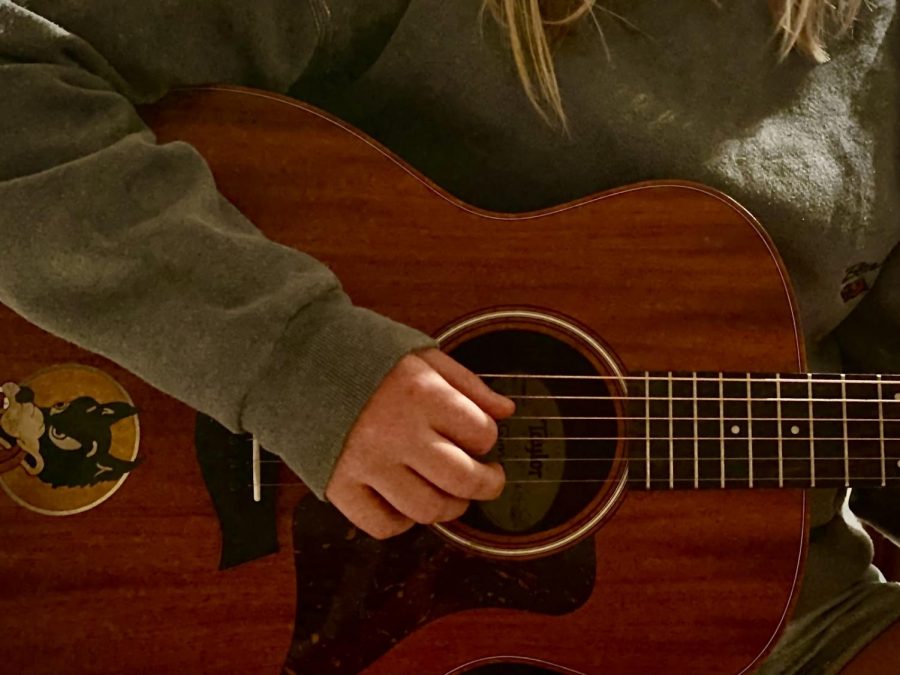The Rise in Guitar Sales During the Pandemic
The author strums her acoustic.
In the midst of the pandemic, I found myself picking up instruments I would have never picked up normally. COVID-19 provided the impetus for me to give them a try. I wasn’t the only one — Shannon Strunk ‘22, says “I picked up guitar during quarantine because I used to play so I already had the basics of it, and it was just another thing to keep me occupied. It was really easy to relearn because I could just watch tutorials on youtube or read tabs of songs.” We can now play songs together, which wouldn’t have even crossed our minds a year ago. Many other people have also had this exact same idea: Why don’t I try to learn an instrument while I’m stuck at home? In fact, Fender sold more guitars in 2020 than any other year in its history. So what does this mean for the future of music?
Let’s take a step back from guitars, and look at how music has changed over time in general. In the past, you could clearly distinguish the instruments used in songs, usually guitar or piano. Sometimes, bands even used whole orchestras, like The Beatles, for example. Their song “A Day In The Life” is interrupted halfway through by an array of instruments, obviously part of an orchestra. However, recently, producers and songwriters have strayed away from using individual instruments, and have begun to take advantage of synthesizers. With their increasing popularity, synthesizers are used in almost every genre of music. According to Fact Magazine, “The synthesizer is as important, and as ubiquitous, in modern music today as the human voice.” But now, with guitar sales greatly increasing, will music start to age backwards, back to the era of electric or acoustic guitars and piano, as well as many other instruments?
Because of this rise in synthesizer use, major music businesses, like Guitar Center and Sweetwater, were on track to go bankrupt: “Gibson guitars, whose celebrated Les Paul line had helped put the Led in Zeppelin, was sliding toward bankruptcy,” (New York Times). This surge of people itching for something to do has saved these companies; according to Rolling Stone, Sweetwater acquired more than 1.5 million buyers in 2020, a million more than in 2019, and even something as simple as typing into a search engine, “Where can I buy a guitar?” has increased by 50% in just 2020. Because of this increase, it is increasingly more difficult to purchase a guitar, sales have gone up and the prices of vintage ones sold on Ebay, for example, are skyrocketing. “A half-year into a pandemic that has threatened to sink entire industries, people are turning to the guitar as a quarantine companion and psychological salve, spurring a surge in sales for some of the most storied companies (Fender, Gibson, Martin, Taylor) that has shocked even industry veterans,” (New York Times).
My dad has tried relentlessly in the past to get me to take some interest in the guitar, but I’ve either been busy, or I’ve given up after 20 minutes. My excuse “I don’t have time” quickly became irrelevant, because I, along with the rest of America, didn’t have anywhere to go. Regardless of being male or female, young or old, many people found therapy in music during a very difficult time, and because of this spur, the future of music might begin to change.






